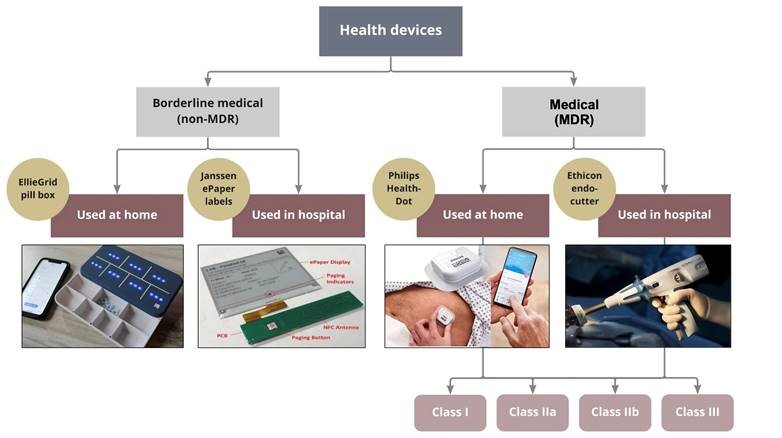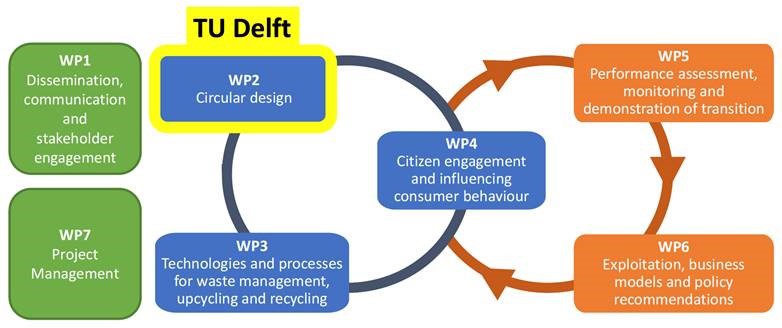Digital Health in a Circular Economy (DiCE)
The healthcare industry is a major producer of global CO2 emissions, material waste and other pollution. With the use of digital health devices predicted to grow 20 per cent by 2027, the European Union has developed sixteen ethical principles for digital health, four of which focus on environmental sustainability. How can we use design to shape a more sustainable digital healthcare industry?
“DiCE” (Digital health in a Circular Economy) is a project to work with the medical device industry to transition to circular product design, rather than single-use products. The collaboration involves 20 organisations from nine countries, representing manufacturers, researchers, and recyclers, including Janssen and Philips. It is funded through the European Union’s Horizon Europe programme.
Making electronic healthcare products circular is important because the healthcare industry emits 4.4% of global CO2 emissions, according to Health Care Without Harm. This is almost double the emissions of the aviation or shipping industries. In addition to climate change, the industry causes material waste and other pollution, and its e-waste consumes critical raw materials mined in foreign countries.
DiCE will help this by redesigning four products as case studies: an ePaper label, a smart wearable sensor, a smart pill box and an endo-cutter used in surgical procedures. Each presents different challenges, and together they represent most electronic healthcare products, both medical and non-medical, for both reuse/remanufacturing and recycling. The project, with partners across the entire product life cycle, targets every point from design to disposal and recovery.
Historically, medical devices have often been designed for single use and have been difficult to recycle or recover at end of life, because they may pose contamination risks to anyone handling them. There are also stringent legal regulations on the products, materials and how they are handled. This project aims to identify these barriers and find design solutions to overcome them at scale across many product types, stakeholders, and usage scenarios.
TU Delft’s work on DiCE will deliver an industry design guide for circular healthcare products and the services or systems needed for them to become circular and sustainable. This will be based not only on theoretical designs, but on empirical testing of prototypes in five healthcare systems through community-engaged pilots in Norway, Belgium, Slovenia, Spain and Germany. It will connect with other work by other partners on changing behaviour, material recovery and recycling, business models and quantifying impact savings.
The expected impacts of redesigning the four case-study products will be 650 tonnes of CO2eq./yr emissions avoided and € 108 M/yr of critical raw materials saved. If the design principles are scaled up to broader industry design, it may avoid 470 Kt – 5.2 Mt CO2eq/yr of emissions and save € 3.7 Bn/yr – € 7.3 Bn/yr in raw materials.

Conny Bakker
- +31 (0)15 27 89822
- C.A.Bakker@tudelft.nl
-
Room B-3-330

Tamara Hoveling
- t.hoveling@tudelft.nl
-
Present on: Mon-Tue-Wed-Thu-Fri

Jeremy Faludi
- +31 (0)15 278 98 07
- J.Faludi@tudelft.nl
- faludidesign.com
-
Room 32-B-3-320
Present on: Mon-Tue-Wed-Thu-Fri
"To get the future you want, start building now."
Partners:
The collaboration involves 20 organisations from nine countries, representing manufacturers, researchers, and recyclers, including the pharmaceutical company, Janssen.



